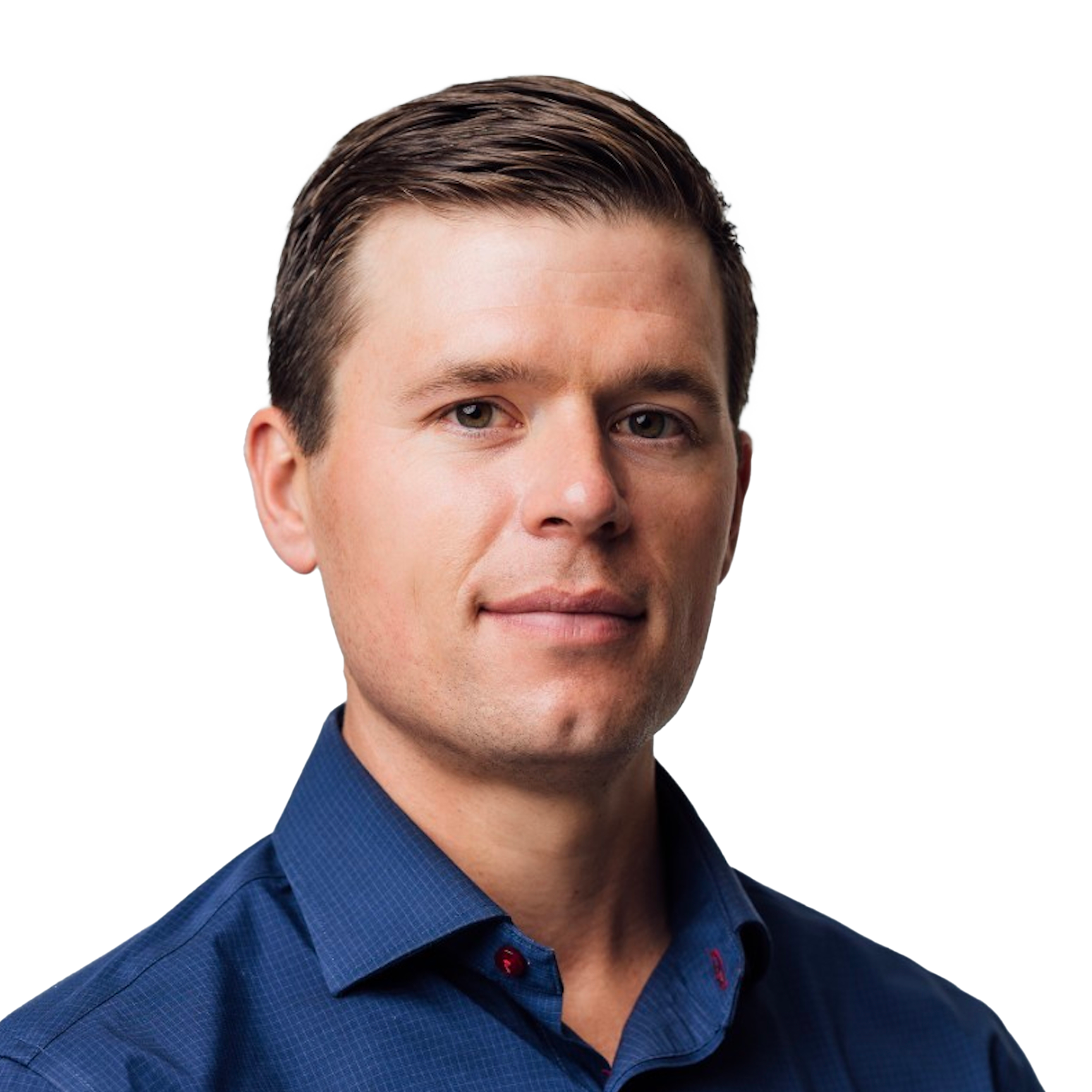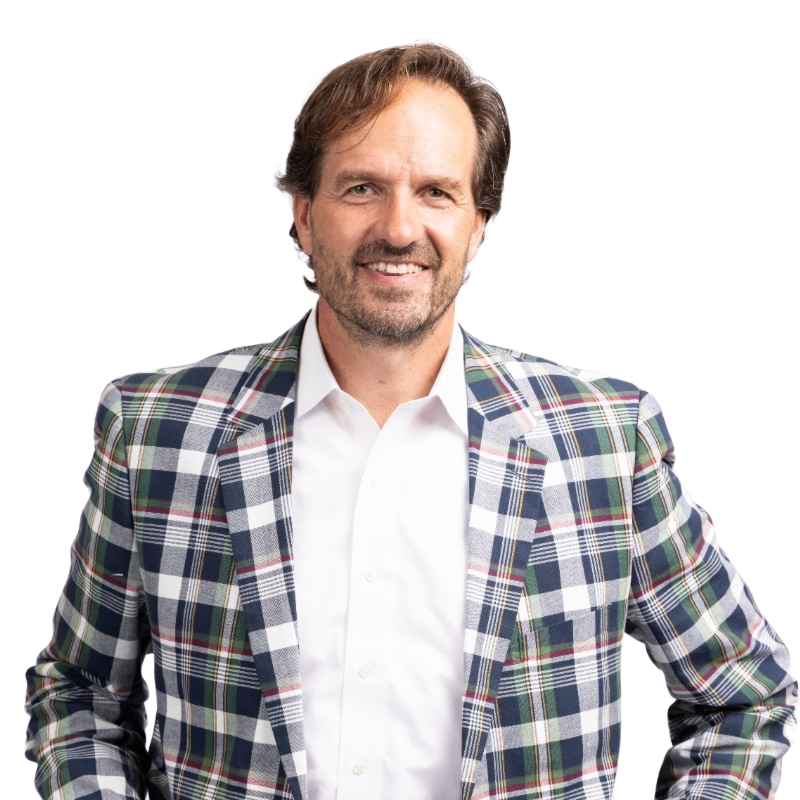
BACK TO PODCASTS
Holly Liu
Co-founder
|
Kabam
Episode #
13
This week tracy sat down with Holly Liu, co-founder of Kabam. Holly shared insights into her background, discussing her upbringing in Palmdale, California, and her journey through identity as one of the few Asian kids in her town. She recounted her path to founding Kabam, which began as a corporate social networking company before pivoting to mobile gaming. Holly detailed Kabam’s significant pivots and eventual success in the mobile gaming industry, particularly their hit game “Marvel Contest of Champions.” Tracy and Holly also discussed effective go-to-market strategies, highlighting the importance of analytics and consumer behavior metrics in B2C markets. Holly emphasized the value of building a solid team, possessing humility, and maintaining determination, while also discussing the different stages of company growth and the types of people suited for each stage.

This week tracy sat down with Holly Liu, co-founder of Kabam. Holly shared insights into her background, discussing her upbringing in Palmdale, California, and her journey through identity as one of the few Asian kids in her town. She recounted her path to founding Kabam, which began as a corporate social networking company before pivoting to mobile gaming. Holly detailed Kabam’s significant pivots and eventual success in the mobile gaming industry, particularly their hit game “Marvel Contest of Champions.”
Tracy and Holly also discussed effective go-to-market strategies, highlighting the importance of analytics and consumer behavior metrics in B2C markets. Holly emphasized the value of building a solid team, possessing humility, and maintaining determination, while also discussing the different stages of company growth and the types of people suited for each stage.
Podcast Transcript
Tracy (00:10.588)
Hi, welcome to Path to Growth. I'm Tracy Young, co -founder and CEO of TigerEye. Today we are joined by Holly Liu, who was co -founder of Kabam, a mobile gaming company that sold for almost a billion dollars in 2017. Holly has been named in Fortune, 10 Most Powerful Women in Gaming, by Forbes, 12 Women in Gaming to Watch For. Holly, it's really great to have you, welcome.
Holly (00:34.532)
Thank you so much, Tracy. I'm so excited to be here.
Tracy (00:37.724)
So tell me about growing up. Where were you raised? Tell me about mom and dad.
Holly (00:41.956)
Yeah, sure. So I was born and raised in this very small town right outside of LA in the Mojave Desert called Palmdale. And I was one of the few Asian kids growing up. My parents are Chinese. They're originally from mainland China via Taiwan. And they came, actually they landed in Oregon for their master's degrees. And at that time, for most folks who are ethnically Chinese,
the route was very much either that way or through Hong Kong, just given the relationship with China. So there just really wasn't a lot of Chinese folks in the US at the time, I would say. And they started out in Oregon and they just kept driving further and further south. My mom was a teacher, she was looking for a job and Palmdale was the first place that she found a job. And I will tell you back then, there was no answering machine, there was no call waiting.
So they literally had to, I don't even know if kids know about newspapers these days, but they had to go into a newspaper circle, circle this, find out what place was hiring and then go into the office with their resume. And so they just kept driving South. We joke around because about an hour South of us is LA proper with some of the best Chinese food in Monterey Park and San Gabriel Valley. So we joke around if we just kept driving further South, there might've been a bit more Chinese.
people and more importantly, Chinese food. But that certainly, it was me and my sister, I have an older sister and it was the both of us growing up there and I spent pretty much all of my formative years until college in Palmdale. And it was definitely a very, I would say, idyllic time in some ways. Like,
Tracy (02:12.38)
Mm -hmm.
Holly (02:33.38)
I don't know if you ever watched that show, Stranger Things, but it was very much riding your bikes around. It was just a bit slower. The internet was not there. Yeah.
Tracy (02:39.548)
Mm -hmm. Mm -hmm. So, tell me about that. You were basically the only yellow person in your school, it sounds like.
Holly (02:46.02)
Yeah. Yeah, so this is pretty funny.
Tracy (02:51.42)
Like how did that make you into who you are today? Or do you think it had, I'm sure it had an impact.
Holly (02:56.228)
absolutely. Absolutely a lot of impact of just identity. So you'll laugh at this. So oftentimes I would get the question, what are you? You know, and I'd be like, well, I go, I would always say I'm Chinese. And for the longest time, I thought Chinese American meant you were a person that was half Chinese and half white. Because they kept asking me what I was. And I'm like, well, obviously they don't think I'm American.
They don't think I'm white like them, but there's something that they couldn't tell. So I felt very like I was passable or something. Like I was white. I know this is very strange, but that people just couldn't tell for some reason, because they kept asking me. And it's really funny because I ended up in college at UCLA. And for those that don't know, UCLA, the acronym is University of Caucasians Lost Among Asians. And I...
I remember I was sitting in a Chicana studies class. I know this is how mixed up I was around my identity. And I remember the exercise was that you were supposed to write a paragraph about the person sitting next to you and read it out loud to class. And that was like the first exercise you were supposed to do. And like basically what had happened was she started reading her paragraph. I couldn't remember what she said, but I just remember the first line, which was, the girl next to me is Asian. Ha.
Like that's really hard to tell. And I was like, whoa. And I remember going back to my dorm room and just looking in the mirror and being like, wow, people could actually tell. And I had noticed, I didn't get that question a lot of like, what are you? Where are you from? Where are you really from? Because I looked like everyone else. And I do think how that's really impacted just a bit of the entrepreneurship journey is,
In some ways, growing up in a place that didn't have a lot of Asians, and even during a time that just we weren't on screen, so that was, it was very difficult. You could feel very lonely and alone. And I'm sure you probably feel this too in preparing you for entrepreneurship is it's a very lonely road. There's a lot of ways in which where you have to be kind of sure of yourself and at the same time open.
Holly (05:18.02)
to what the market tells you, right? So there's this duality that you're constantly living in that for me, I think, culture, like not just culturally, but being in that position, let alone haven't even talked about like being a woman and oftentimes being the only woman in the room and how that does impact things. On the flip side, because I've always, in some ways, even in the beginning of my journey in entrepreneurship and getting into tech,
you know, oftentimes people would ask me like, what's it like being a woman in tech? And I'm like, I just am. And it, I look back and I'm like, this is a lot of naivete. But I think it's that naivete coupled with like, I must have this superpower that people can't tell what I really am. Cause they keep asking me that like enabled me to just try things and try and do things and a little bit, have a little bit of that chutzpah of like, okay, let me go ahead and try this, this thing here. And maybe,
and not realizing maybe that this was inappropriate or a little bit, maybe not as worried as what other people thought. Although I did worry a lot about what my parents thought. I had your traditional Asian tiger parents. So for sure, there was certainly a lot of that. But I definitely think that kind of upbringing with that kind of environment, given my cultural identity, gender identity, and then as well as,
Holly (06:46.5)
Just being immigrants in a foreign land where more often than not, absolutely people would make fun of my parents and their accent. They spoke English fine. They actually, my mom had to teach in English, but they just weren't used to hearing those types of accents, particularly Asian accent. Translating, I didn't have to translate the language. So I definitely know a lot of kids have to translate actually the language and forms.
Holly (07:16.452)
For me, a bit of less of that, but certainly a lot of cultural navigation. My dad would ask some really good questions. You know, just be like, Holly, why is the dime worth more than the nickel, but it's so much smaller? And then I remember this one time, he goes, Holly, do I do, you know, I see my teacher colleagues every day and they give me a Christmas card. Am I supposed to return the Christmas card? I'm like,
Holly (07:44.804)
I don't know. I guess so. But he goes, it just signs their name and I see them every day. This makes no sense. And I go, I don't know, dad. I'm not sure. And then his favorite is asking me questions about idioms. He's like, Holly, what does driving me up the wall mean? I go, that's what you're doing to me right now, dad. You're driving me crazy. So it's a privilege, I would say, to be able to grow up in that kind of environment. I would say growing up.
There was a lot of shame and a lot of hiding and embarrassed of just being the other. But in some ways, if those types of things didn't happen, I just don't know if I would have the certain perspective I would now on different things. And it's a continuous journey for me and quite honestly, my race and my gender identity and even raising a family. Yeah.
Tracy (08:25.436)
Mm -hmm, mm -hmm. And we'll talk more about that. Let's talk about Kabam for a little bit. What inspired you to found Kabam? And tell our audience what it is for those that do not know.
Holly (08:50.18)
Absolutely. So, Kabam is a mobile gaming company. We made games for many Hollywood franchises, Marvel, Hobbit, Fast and Furious. I joke and I say, basically, if it was a PG -13 Hollywood franchise, we probably made a game for it. Our most popular game is Marvel Contest of Champions. If you're a fan of Marvel, you can pretend you're Spider -Man or Incredible Hulk and do some Street Fighter moves and fight against one another.
That one is probably, that one actually has been pretty fun because for the longest time you could find that in the Apple Store preloaded, like, you know, on the demo apps for the iPhones, you could find it there. So that was there for the longest time and you can still play it today. It's probably one of our, it's definitely one of our most popular games for sure. But the funniest thing that not many people know is that it didn't start out as a mobile gaming company.
So there are some companies that are incredibly fortunate to start out in the space that they are in. For us, I joke around, I feel like we built three drastically different companies. Usually people pivot and they don't pivot into as wildly as we did. I don't know if you even know, Tracy, but we started out as a corporate social networking company.
Tracy (10:05.116)
No way.
Holly (10:13.316)
Which is the weirdest thing. Yeah, it was 2006. And funny enough, it was a very different time. And I actually remember this. You had asked me what inspired me to go start a company. I remember watching this YouTube video with Steve Chen and Chad Hurley. And I particularly remember Steve because there just wasn't a lot of Asians that were doing companies at the time. And I remember they were going to...
Burger King hat and they're like, we just sold YouTube to Google for like a billion dollars. And I was like, my gosh. And that was a bit of an inspiration of like, okay, I think the market's ready. I think we could actually go and do something. So I called up my cousin who became our CEO. He was a venture capitalist at the time. I'm like, we should do something.
He probably knew the market a bit more because I was like, I'm not a market person. He was the best business guy I knew. And he goes, Holly, like these are all good. I pitched him all these ideas. These are all good ideas, but we still need like a tech person. I'm like, I know just the guy. I used to work with this one guy at Accenture when I was doing consulting. So I went and I recruited him and he was like, I'm a back end guy. We need a front end guy. And I go, I know just the guy. I'm doing these projects with him.
Tracy (11:15.1)
Okay.
Holly (11:33.508)
So, no, if you're looking for a co -founder, I highly recommend, and you're working, I highly recommend, that's a really great place to find them. We would work together outside of work on other projects. And so I already knew, you know, I already knew how we worked together, which was really nice. So for a lot of folks out there, sometimes, you know, it's hard to start it with friends, it's hard to start it with family, but that's always the nice thing if you have coworkers.
Holly (12:03.236)
So anyways, for us at the time, we also thought like, well, Facebook was killing it. I know this is like totally dating myself, but Facebook was killing it. And we're like, hey, maybe we should build like a, the smartest thing we thought Facebook did was they lasted it by email addresses, email domains. So that was your virtual community that you could trust. If you're a harvard .edu, we knew you were a student. We're like, what if we did this for companies? So funny enough, we became a B2B company.
didn't even know it. We're like, let's build Facebook. But for people who actually have money, these college students are too poor. And so we ended up building like basically the intranet. Before there was an intranet and it was really funny because we were all B2C people. I had worked, all of us founders and it's, there's an old adage and we can get into it if you want to about, you don't take a B2C founder and put them in B2B. You don't take a B2B founder and put them in B2C.
Tracy (12:58.492)
Yeah.
Holly (13:00.548)
And there's many reasons why that is the adage, but it was really funny because we're a bunch of kids after like eight months, three product iterations later, we pretty much had like 1500 registered users, five daily active users, which are probably our moms. And then we had about 20 cease and desist letters from all these lawyers because we were like pretty much inviting people at.
like Intel or these companies and they're like, what are you doing, breaching this firewall like that? And we're like, okay. And we even were, we even had a friend come in, he used to do sales at Oracle and he's like teaching us how to cold call. He was like smile and dial. I was like, interesting, right? And the funniest thing is we were running out of money. so just so you know, we raised a little bit of seed money. It was very fortunate that our CEO used to be
Holly (13:55.716)
VC. We pounded the pavement. YC at that time had just started, but they were on the East Coast. There was no such thing as angels. We raised a little bit of seed. We were even incubated in the back of our VC's office near the server room. It was great. We didn't have to spend any money on office. We literally were eating ramen some nights for sure and eating their leftover pizza. They were very nice to us.
Tracy (14:19.324)
you
Holly (14:23.204)
So, but we were running out and at the time we had a product manager who had joined our group. And it was funny because we were looking for the author who wrote this book called Inside Facebook, but we ended up recruiting the guy who was a, his blog was called Inside Facebook and he just would track Facebook. And he was an amazing product manager. And he's like, guys, you know, I think,
something's going on with Facebook, because that's all he did on his side was write about Facebook. And the funniest thing is our investor at the time, it was only one, she basically, first she was like, we try to return the money and she's like, this isn't even worth the write -off, so just keep on going and try to figure it out. We're like, okay. And then we were like, wow, maybe B2B is not in us since we're all B2C.
Holly (15:20.004)
people. And so that ended up going into probably our first pivot. We hadn't even touched mobile games. We ended up building communities for Facebook around TV shows and sports teams. So that we ended up doing that in about 2007. We grew that to over, I want to say 30 million registered users. Like it was just crazy. Like I Facebook app days was just growing like gangbusters. And the craziest thing is when
ABC wanted to distribute video on Facebook. They didn't call Facebook. They called us up. So we had pretty much the largest network of TV fans and sports fans. So if you love the Simpsons, you can add something to your profile and show your favorite quote. And it was just really, it was something that the community, or something that Facebook really lacked. And then the craziest thing, which is funny,
Holly (16:18.244)
I bet you got more than you bargained for with this question. But the funniest thing is around 2008, Facebook was changing a lot of things to route traffic differently. This was kind of crazy. Around May, we had decided, hey, you know what? We should go out for our Series B launch, our Series B fundraise. We think we need a bit more capital to be able to get a lot more, you know,
Holly (16:46.276)
advertising, it was an advertising based model, basically. And then we were like, okay, let's do this. And then we closed by the end of the summer, which was super impressive at that time. And then, you know, they were supposed to, you know, it'd take a while to close everything. And the day they were supposed to wire the money was the same day that Bear Stearns and Lehman Brothers had dropped to a dollar.
Holly (17:15.588)
And that kicked off the great recession. And it was even crazy. It wasn't even like the funding never came in, but we lost like $3 million contracts overnight. We lost like everything, like all the CPMs. They were paying out crap because advertising is like the first to go in a recession. People pull back dollars. It's discretionary spend. So we were back at it again. We're like, my gosh, this is like the worst.
Holly (17:42.98)
And it's crazy too, because the other thing you learn is like a deal's not done until money's in the bank. I think like a lot of people, I'm like, so much can happen between now and then. And it was just unheard of like in our minds that like a VC would commit, sign term sheets and all they need to do is wire the money and then it pulls out. But it happens. A lot of things happen. And...
Tracy (17:47.356)
Yeah.
Tracy (17:54.588)
Is here.
Holly (18:08.644)
But the other, but we went back to the drawing board again and we're like, well, I think a couple of things we looked at was like market, passion points and core competencies. Probably both times when we were pivoting and we ended up looking at the market and we're like, well, Facebook is, or there's this company on Facebook called Zynga that built Farmville. And we're like, my gosh, they're killing it. I mean, in spite of everything, they're growing, they have revenue. Like maybe this,
like there's something here with Facebook games. At the same time, we also were very much like, hey, you know, our core competency, we had about 100 years worth of Facebook app building experience. We're like, we knew how to build apps on Facebook. And then finally, I would say our CEO was incredibly passionate about games, except for the type of games he liked didn't exist on Facebook yet.
Holly (19:05.092)
So during that time it was Farmville, you could send a purple cow to your mom. And that's when we ended up coming with our first Facebook game, which was our, like, probably our longest running franchise called Kingdoms of Camelot. And basically it was a strategy based game. So you could think of it a little bit like Settlers of Catan, where you could play a lot of, you grow your resources, so you could grow your town.
Tracy (19:12.028)
Yep.
Holly (19:34.756)
And then eventually you could build treaties with other towns and kingdoms, or you can go to war. And a couple of things that was just so interesting that it ended up leveraging just a lot of lessons of, you know, it was funny because we thought this was just going to be crap for sure, because we did a user testing with friends and family. And you think your friends and family are going to be nice to you, but my friends and family were very mean. They were very straight up. So we always talk about user testing. If you ask your friends and family.
Tracy (19:35.676)
Thank you.
Holly (20:04.164)
They're usually nice to you, but for some reason that night, I even remember thinking this thought, I was like, I think I'd rather be watching, or not watching, but standing in line at the DMV than watching these people struggle through our game. Because they couldn't even onboard. And then when they onboarded, they were like, the chat is dead. We had chat. It was just, I was like, my gosh. And I just remember talking to our CEO, I go, this is a disaster. I've never seen anything like this.
And he's like, I'm not too sure what to do, Holly. And I'm like, well, I guess I call, he's like, this is it, we're betting the company on this. And I'm like, okay, we used to tell each other, go big or go home. And I'm like, okay, go big or go home. So we fixed what we could in the first time boarding and we launched it. We didn't even finish the game when we launched it. Like there's a portion of game design called the elder design and the later stuff. I mean, you could probably build your buildings and it was,
Holly (21:04.196)
I mean, I'm really glad we decided to launch it. It definitely wasn't perfect. We had our interns and students doing it. And in spite of everything, it was like, it was so interesting to see people using it. So there's a couple of things that was very new for people on Facebook. First, before you could only chat with your friends. So Facebook is very good about connecting deep, meaningful relationships.
However, when it comes to interest -based graphs like TV, games, all these things that people have an interest in, just because you're my friend doesn't mean we love Grey's Anatomy. It may not be the same interests, right? So what we found is oftentimes these shared interests can actually lead to meaningful relationships. It was a bit of the reverse. So we use that. We basically, the chat enabled people to meet friends of shared interests.
we started doing a lot of much more social types of, mechanics in there so that people could form alliances. And the funniest thing is, I had a family member, he was just ripping on the game during, during our user testing and he ended up, I mean, he ended up becoming one of our longest tenured players and he even became what we call like a vice chancellor, which is like an alliance leader. So, it was really interesting that once.
Holly (22:30.82)
people came in. And if you have a role for other people to play and produce and create, just how much more sticky that is. Because in the user testing, he was absolutely like, my gosh, this is so terrible. Everything about it is terrible. But once you had other people in there, it just came to life. And that's how we ended up in games. And then many things shifted to mobile. And we certainly caught
Holly (23:00.1)
the mobile wave and a lot of things in the market at that time, how we ended up mainly becoming the house for like Hollywood franchise IPs is really because our cost of users just became ultimately really cost prohibitive. And I'm happy to dig more into that, but that's really kind of a bit of our journey. We didn't start out as a mobile gaming company. We tried to start as a mobile gaming company.
Tracy (23:24.028)
I thought I knew the cabam story and I'm so glad I asked you that question. So you attributed growth to both like, you know, getting users to stay in the roles and it was sticky that way. And also because you rode the mobile wave in a time where there's just like so many games you, I mean, under your leadership, cabam grew from nothing to 400 million in revenue annually. Like what go to market strategies worked for cabam that you could share with us.
Holly (23:29.86)
You get that?
Holly (23:39.556)
Yes, I'm a boy.
Holly (23:52.772)
Yeah, so I... Yeah, yeah. I know.
Tracy (23:54.012)
For those of us who aren't familiar with consumer, right? I think consumer feels obviously like, for someone in B2B software, you have to understand consumer always feels like magic pixie dust. Like, I don't know why Instagram became Instagram. I don't know why Caban became Caban. So please do share with us.
Holly (24:03.748)
Hahaha!
You can have, yeah, absolutely. So first I really have to attribute a ton to not only just the CEO, but we had some studios presidents and even our CFO just kind of building in a lot of these models. I mean, we were, I just forgot like our previous CEO was like, Holly, there was no such thing as a cohort model in games before and.
a lot of things that we needed to measure, we kind of had to invent. And that was really, I would say, our CEO and much of the rest of the team. I cannot take credit for that. So first, you really kind of have to get some of those things in, but I'll back up a little bit on like consumer and go -to -market strategy. So my biggest joke about a B2C founder or a B2C CEO is someone who is probably quite introverted and wants to get a ton of users with never talking to people.
That is the name of the game, right? Is to find like all these users at once without having to like call them without having to ever talk to somebody. And so I always think like B2C is really a lot of founders or CEOs tend to be highly introverted and they want to like get more people using without talking to them. And that is really for consumer.
It's a blessing and a curse, right? Because for consumer, what happens is instead of people being a channel or part, and sometimes partnerships will work. And it's moving more into that direction in terms of using partnerships and even using some B2B growth tactics because of ways the environment, I will say, has consolidated. And so now you do have possibly channel partners in the form of influencers for consumers. But...
Holly (26:03.236)
Consumers that you know, you originally asked us like how does Instagram become Instagram? How does cabam become cabam? I think those the those types really benefited from a couple of things first growing platforms, right? Like I I really think like Particularly like a game that's very content driven. I I'm of the the mindset that the platform itself needs to be growing to kind of get it pushing some more. I
Now, there's some people that would argue the opposite side, like a phenomenal content is phenomenal content. Or you can go back and you take a look at example of Facebook. When Facebook came out, there was already so many social networks, right? But not everybody was on the social network yet, right? It wasn't entirely saturated. And his whole thing in terms of like being able to grow virally was to be able...
for him not to be there and someone tells somebody else, right? And his, the way he did it is the very fact that he made it more niche actually enabled the density to go a lot faster and then take that density to another university and then another university. The other two things that like, well, not two things, the other thing that we benefited from that time or Facebook did, LinkedIn did, Instagram did is particularly the,
for the internet, there was not any spam laws, definitely when MySpace was around. So they would just spam the crap. They would buy these lists and they would just spam, LinkedIn and Facebook has notoriously sucked in your contacts, right? And really check mark all, and then you send it all. Like really aggressive tactics, right? In terms of like getting there first. And consumer, it...
I do believe there's a little bit more of a winner take all than in B2B because reality is, it's like you're fighting for the time and intention of the consumer and it can't be split. Whereas B2B, because you have to go in and find them and they're not actually looking, there's still a lot of great places where you can find customers and there could probably be like several winners. Plus quite frankly, companies have a lot more money than individual consumers. So you're constantly having to get.
Holly (28:28.1)
a lot of smaller fish to make up something a lot bigger, right? And so that's usually, so that, and in the mobile world, absolutely, there were very aggressive tactics early on. That's why growing platforms are super friendly to like consumers and apps and content because they need that growth and distribution. And if they can't get it in mass, it's really, really hard. I joke around,
Holly (28:57.86)
with people, but there's like basically, and then the fourth thing is you become incredibly analytics driven, right? Because you don't know, because you can't talk to everybody. The click is that representation of everything. So we're like, okay, you know, we don't even have an NPS score in consumer because we don't know, we're like, what they say is crap. I care much more what they do. Whereas,
Holly (29:27.876)
I'm assuming in B2B it's quite different because you're selling to sometimes not even the person using it. Most of the time it's not. Most of the time it's somebody who's going to sell it to somebody who's going to give you the check, right? So in consumer, it's incredibly analytics driven. So you start caring a lot about your acquisition, your retention, your engagement and your monetization. I liken it to a party.
If nobody knows about your party, they can't come. So virality acquisition is very important. Once they come to their party, are they just checking out the door and then just turn around or will they stay? That's engagement. And then will they come back to your party next week? And then monetization is like the Holy grail. And consumers, consumer type companies can get stuck at any four of these things, but those are the four gates you really kind of have to, well, ultimately monetization is probably the most important.
Holly (30:22.788)
thing because you cannot eat off of, you can eat off of daily active users, but then you have to sell it to a different customer. So for us, when games ended up coming around, they weren't as viral as Farmville. Like for the life of me, I couldn't get my mother to help me build my kingdom in Camelot, right? Like, but I can get her to give me a purple cow. So, so, but to make up for that, we ended up with monetization.
So the name of the game is always trying to find these channels that are cheaper to acquire in mass. So usually what will happen in growing platforms, it'll either be they have this window of opportunity because they want more people using their platform, super laxed about the communications. So that's one way to grow. Another way to grow for us, our hack really was, and I do feel like for a consumer, it's a bunch of hacking things together, but.
Holly (31:19.684)
our hack was really to, when Facebook was growing because we weren't naturally viral and it was a blessing in disguise, they hadn't had their ad network yet. And so it fully formed, it wasn't fully formed. So we were able to get all of these users for like pennies on the dollar. It was so incredibly cheap. We got really good at user acquisition. In some ways it became a drug to us, but we've, we probably have placed like,
Holly (31:49.028)
Cabana's in gaming has probably placed a ton of the UA folks in all of these gaming companies everywhere. And really kind of came up with modeling of like day one, day seven, day 14. So basically cohort modeling. And basically what cohort modeling is, is if people add this on day one, how many of those people come back on day seven? How many people come back on day 30? So they call them D1, D7, D14, D30.
and they call those retention numbers, right? And then the retention numbers feed into the lifetime value of the customer. That's like the holy grail of any business is to know for this customer, how much will they give us, right? And what's the cost to acquire them. So there is a bit of alchemy involved on it along the way. I would imagine B2B might be a little straightforward, but it could be very wrong in that. And maybe you have to...
have a deeper discussion or listen to your other podcasts to think about like, what are some of the metrics? But it is much more incredibly metric driven. And the alchemy piece of things is really oftentimes I tell other founders or even investors, I was like, you should really talk to them about like, how do they calculate their LTV? How do they calculate, how do they count it as a user? Right? And just make sure you're on the same page of all these different things. I do think the industry has gotten much more,
professionalized and we're much more on the same page than when we did it, I would say. So I will say there's probably certainly standards now for sure, actually. I take that back. So investors, it should be much more around that. So that's it too.
Tracy (33:27.26)
That was really cool to hear from you on how consumer software has grown. A lot of similarities to B2B. In fact, the ability to look at a certain cohort of reps and teammates and compare them to another or historical, I mean, that's something that TigerEye does really, really well. And so it was really interesting to hear you talk about that and just thinking about how.
Holly (33:38.308)
Okay interesting.
Tracy (33:57.468)
similarity there is in the product that we built to help other businesses grow faster. You have hired probably thousands of people over the years. You have been a prolific angel investor and you spent many batches teaching at Y Combinator and investing at Y Combinator. What are the personality traits and characteristics that you look for in, you know, like
Holly (34:02.74)
that's interesting.
Tracy (34:26.236)
just good people, good founders, good executives, good employees. Is there a pattern here? Maybe it needs to be separated from, you know, ICs to leaders to founders. I don't know.
Holly (34:37.06)
Yeah, I certainly think at different stages of a company, you need different types of people for sure, I think. So it really is depending on like what kind of team that you're building. But I think obviously the first thing is you really need somebody who wants to like either be a part of like be a part of a team or leading the team, right? Like a team environment, like being much more open to like being part of a team, even at the IC level.
because there's no way to be able to do something greater than yourself by just yourself, right? You definitely need other people. So I definitely think that characteristic translates across up and down is kind of the ability to work in teams and the idea of roles. And underneath that is a ton of humility, right? Where folks are, I'm always incredibly impressed with incredibly successful people and...
they dawn on the mindset of like, I'm back to square one. I'm a newbie. And the ones that do it really well don't forget everything, but they know it's a clean slate. They know there's so much more to learn. They're like, okay, these are, so a learning mindset is absolutely something that I think is incredibly helpful. And then I think like a third thing that is very helpful, probably much more at,
a foundership level out of anything would be how determined they are. I think determination, but not stubbornness. I've seen a lot of founders die due to stubbornness or a lot of companies die due to stubbornness, but determination, I think for founders is really high. But yeah, absolutely. I think like some of those characteristics are incredibly important when kind of thinking about building the team. And then there's...
Other things that I think are a bit more unique given where you are in the company, what kind of role it is. There are times, and I'm sure this has happened with you as well in your company where, you know, things have become like there's a legacy product that you need to maintain. And for some people, you know, the kind of team and the kind of people you wanted initially, there's some people that are like,
Holly (36:59.94)
I really like the fact that they're go -getters. They really want to make their mark. They want to use this. I'm even okay with people who want to use this to launch their career. I'm totally fine with that. We love that at like rocket ship phase. But then sometimes there's these legacy products where we're like, you know what? It's okay that you're not this go -getter. I need you here to make sure nothing goes wrong with this because this is our moneymaker and this is an incredibly important job. And so,
Holly (37:28.036)
So it's very, it's kind of like different when you talk about personality traits across the board of just kind of what is the project want, what is the team and what does the team need? Now, I'm a huge fan of like hiring, not necessarily for the player, but hiring for the team, right? And oftentimes you probably find this what could be a great fit for a team in one place. They're like a much better fit for another team.
Holly (37:55.556)
in another place or even sometimes a different company altogether. Sometimes you see them just thriving. You're like, wow, I didn't quite realize, you know, and it just might not have been a fit culturally for them as well. And I'm like, wow, they really went on to do some really cool stuff. And we must have held them back because like they couldn't do it at our company. Yeah. So I think it's really great.
Tracy (38:18.276)
Okay, last question. I want to make it a good one. I have actually so many questions to ask you. We can go for like two more hours. Look, you are an incredibly successful, ambitious human being. And you're also, as your friend, I know you're an incredible mom. So how about sharing some advice?
Holly (38:22.5)
all the last class points. All the last question already. For sure.
Tracy (38:45.308)
for the parents listening here, or maybe folks who want to become parents.
Holly (38:50.884)
Yeah, so I love being a parent. So I'm a huge fan of like having kids, but I really enjoy it. It is a lot of work. So I'm not going to lie to you. Actually, what's really funny is I had a co -colleague. He's like, don't worry, Holly. I tell all new parents the truth about parenting. I go, what is that? He's like, from ages zero to five, it's suicide watch. Well, I can see that. So for sure, parenting is a lot of work.
But I certainly think there's just so much, there's moments of joy that just supersede so many things. So in terms of that, I think like if you want kids, I think you'll make it work. I know that's, and what works for you may not work for somebody else. And one of the things I learned, particularly being a woman and a mom, is for the longest time, it was really funny. I...
Holly (39:48.836)
I had said something, I was, so it's actually my husband ended up staying at home to take care of the kids when they were younger. And I remember telling somebody that, actually it was my investor, I told her this and I said it kind of sheepishly. It's like, yeah, well, my husband's staying at home and taking care of the kids. And I was a bit, I was seeing it sheepishly, not because I was embarrassed of having him at home, but just that I couldn't do it. I couldn't do it all. Like I had to get help.
And she turned to me, she's like, Holly, everybody has help. Like, don't be ashamed of that. Like, don't be ashamed that you moved. She's like, I moved in my parents. Don't be ashamed that you get a nanny. Don't be ashamed of all that because you, especially in America. So folks outside of America, quite different, but like here, just the way the economics work and all the demands, like absolutely.
You know, definitely it's unique and go ahead and pull that. So, and it's unique for other people. So never be ashamed of, of needing or getting help for this. The other thing that I'm still learning, is that I think, I think the most important thing, cause your, your time will be split is if you could be, and Tracy, I think you practice this so well, is that when you're at work or when you're with your friends, you're very present. And when you're with your kids, you're like, you should be present, you know, it's like,
Tracy (41:08.764)
And you know, I couldn't agree more. Our first core value at Tigri is wholeheartedness and wholeheartedness means
Holly (41:14.468)
turn the phones off, put that away. And that will, you can make the most out of parenting and that because that's really what's quality. But I know you do that very well, but I think that is probably the advice I would give on how to do it.
Tracy (41:38.46)
just bring your whole heart in whatever you're doing, whether it's working at TigerEye or it's at home personally, you know, in your life. That if we're having dinner with our family, I don't expect, like, I would not want any of my teammates to be checking Slack or their email or texting us back. It's like, go be with your family and same thing, when you're at work, be at work. Someone else is taking care of the other stuff or make sure you work that out. It's been so much fun talking to you, Holly. We should do this again.
Tracy (42:08.508)
Thank you so much for your stories and advice. You're awesome. I love you. I think you're the best.
Holly (42:08.612)
yeah, for sure. Thank you. Thank you so much.

.png)













